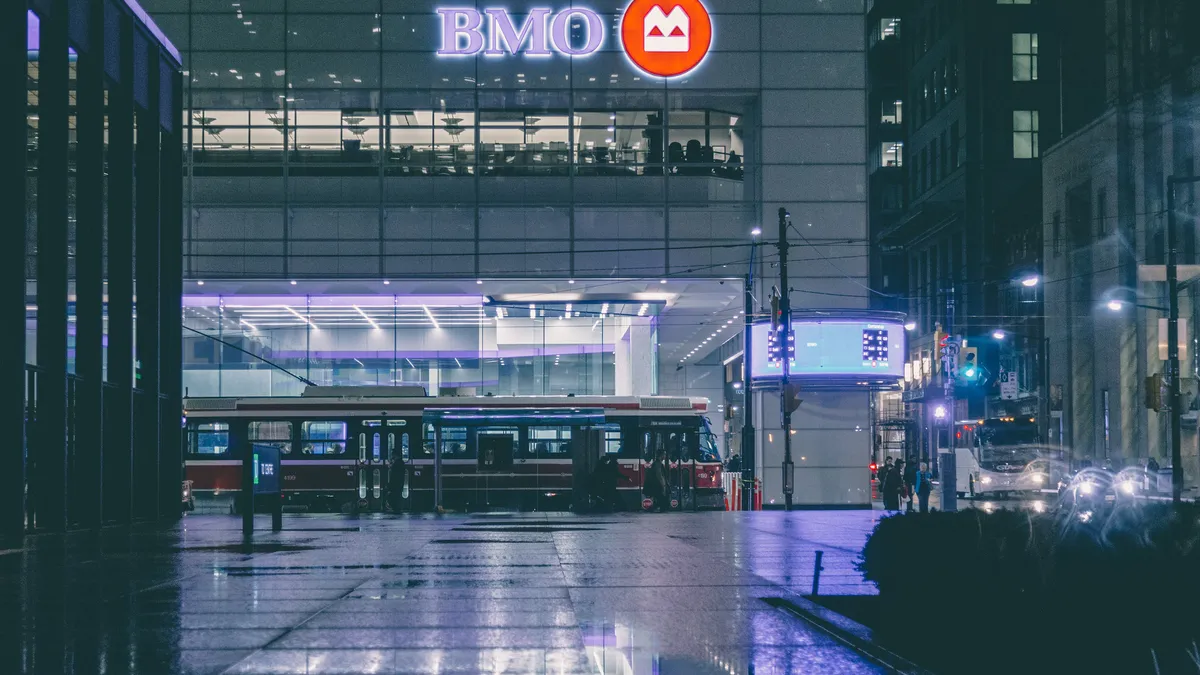The Federal Reserve and the Office of the Comptroller of the Currency approved Bank of Montreal’s $16.3 billion acquisition of San Francisco-based Bank of the West, the regulators announced Tuesday.
The combination will create the 13th-largest U.S. commercial bank with roughly $256 billion in assets, according to OCC figures. That would put it squarely in a size category the Fed has labeled an area of concern.
The central bank in October sought public comment on a proposal that would require banks with between $250 billion and $700 billion in assets to carry long-term debt that would be converted into equity to recapitalize the bank in times of extreme stress. The measure is meant to place the burden of losses, if the bank were to fail, on investors, rather than rely on a taxpayer bailout.
BMO agreed to provide the Fed and the Federal Deposit Insurance Corp. with an update to its resolution plan, the Fed said, adding that the bank would recalculate its capital requirement and detail how it would comply with the October proposal.
BMO said Tuesday it anticipates the acquisition will close Feb. 1, with conversion of Bank of the West’s accounts to follow in early September.
"We are excited to be bringing BMO and Bank of the West together to continue building a leading North American bank with a shared focus on progress for our customers, employees, communities and the planet,” BMO CEO Darryl White said in a statement.
White, on an earnings call last month, revised his estimate for when the Bank of the West deal might be approved but left the timeline purposefully vague.
“We’re saying first quarter of 2023,” he said in December. “Is it first fiscal quarter or first calendar quarter? We don’t know.” BMO’s first fiscal quarter of 2023 ends Jan. 31.
The addition of Bank of the West will infuse BMO’s U.S. subsidiary, BMO Harris, with $91.8 billion in assets, about 1.8 million new customers, roughly 500 branches and a footprint that will entrench it on the West Coast.
Bank of the West CEO Nandita Bakhshi will serve on BMO’s board of directors after the transaction closes, and will be a special adviser to BMO’s senior leaders, focused on integrating the banks, BMO said Tuesday.
BNP Paribas, the French megabank that is selling Bank of the West, its U.S. retail presence, said Tuesday it would detail the final financial impact of the transaction Feb. 7, when it publishes its annual results.
BNP Paribas said its continued presence in the U.S. — particularly its corporate and institutional banking operations — remain a “strategic pillar” for the bank’s development.
The BMO deal marks the second multibillion-dollar bank acquisition that has received final regulatory approval in little over a week. The FDIC last week signed off on the $5.2 billion merger between Columbia Banking System and Umpqua Holdings.
That leaves one pending merger of that size — TD’s $13.4 billion proposed acquisition of Memphis, Tennessee-based First Horizon. TD said last month it expects that transaction to be complete by April.
TD’s deal, however, has seen more vocal opposition than BMO’s. Community advocates at an August public hearing raised concerns over TD’s track record on mortgage lending to borrowers of color.
Later in the month, a dozen groups — led by the Center for Responsible Lending — wrote to officials at the OCC and the Philadelphia Fed, urging them to curb the deal over the amount TD collects in overdraft fees relative to like-sized banks.
And Sen. Elizabeth Warren, D-MA, wrote the OCC in June, asking the regulator to block the acquisition over allegations that TD incentivized employees to enroll customers in new accounts and services like overdraft protection without their consent.
BMO, too, saw its share of community outcry at its own merger-focused public hearing in July, where advocates also raised concern about mortgage lending to nonwhites and the potential effect of the Bank of the West deal on California markets. In response, BMO unveiled a $40 billion community benefits plan in November.














